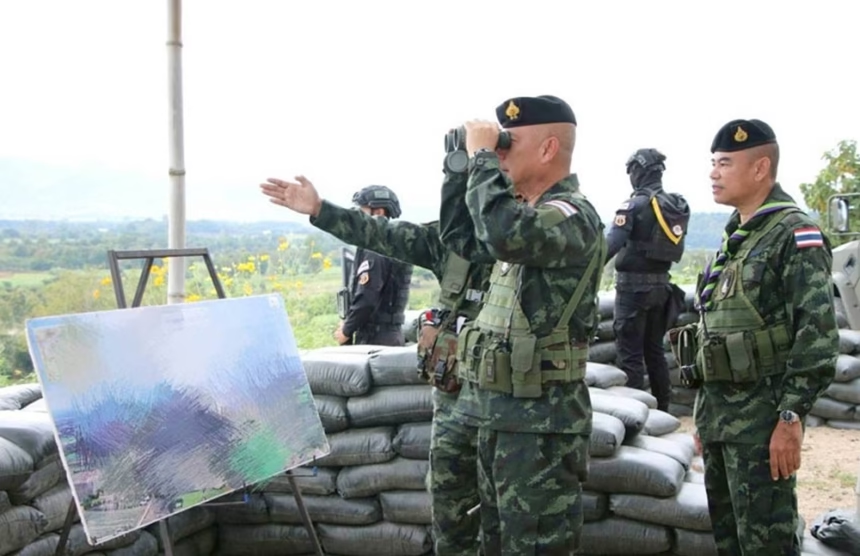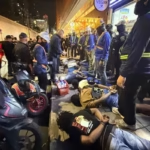MAE SOT – Lt Gen Worathep Boonya, Commander of the 3rd Army Region, met military, police, provincial officials, immigration officers, and related agencies at the Huai Hin Fon checkpoint on the Tak–Mae Sot road in Mae Pa to reinforce measures against illegal entry and human trafficking.
Then continued to the Mae Sot–Myawaddy Border Checkpoint at the Second Thai–Myanmar Friendship Bridge near Ban Wang Takhian Tai in Tha Sai Luat, to support frontline officers and review screening procedures for foreign nationals.
The 3rd Army chief and his team also met the Ambassador of India to Thailand. Discussions focused on human trafficking cases involving Indian victims. Thailand asked for cooperation to reduce the number of Indian nationals lured across to the Myanmar side.
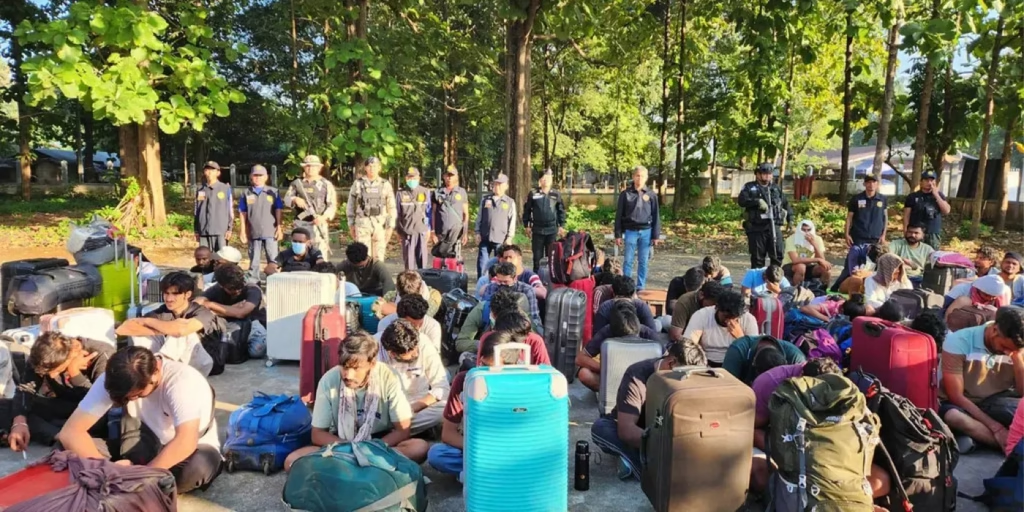
Lt Gen Worathep said all partners are working together to stop foreign nationals from entering by land, air, and on foot. The crackdown on online fraud networks and scam gangs continues under the same three-cuts policy.
Foreign nationals found in the area are interviewed and screened. Cases enter the NRM process to assess victim status. Confirmed victims are referred to the Ministry of Social Development and Human Security, while others are sent to Immigration for further action.
He added that India has agreed to take back its citizens once screening is complete.
He noted that ongoing enforcement by Myanmar authorities may push more people to cross into Thailand. Tak province has prepared a response plan, with two temporary holding sites ready.
Mae Sot- Myanmar Border Security
Budget needs for care and operations will be discussed with higher authorities. The military remains in contact with the local Thai–Myanmar Border Committee, Mae Sot–Myawaddy. If any irregularities arise, a formal protest letter will be issued.
Regarding recent blasts in Myanmar, he said they were demolitions carried out on the Myanmar side, about 0.5 kilometres from the border. There was no drone strike; only planted explosives were used for destruction.
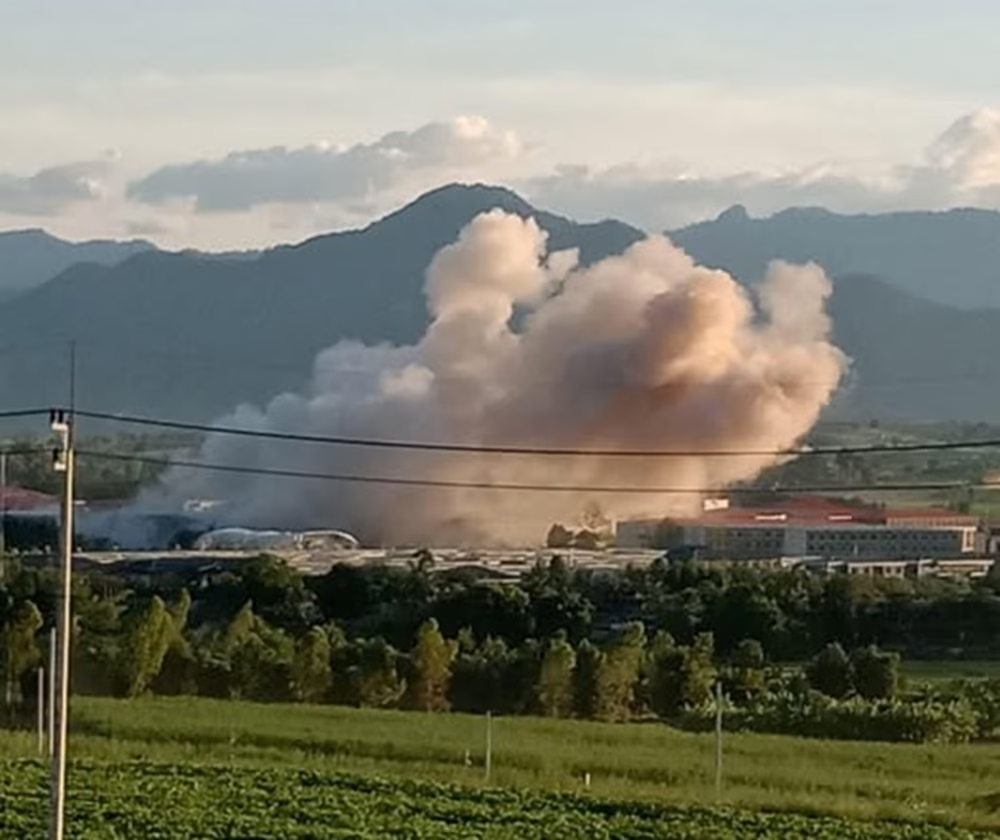
At about 17.27 yesterday, another explosion hit buildings linked to human trafficking and scam syndicates inside the Chinese special economic zone project known as KK Park in Eik Gyi Myaing, Myawaddy, Kayin State.
The site lies opposite Ban Mae Ku Mai Tha Sung, Moo 9, Mae Ku, Mae Sot, Tak. It was the fourth such blast. The detonation shook areas on both sides of the border, with a large dust plume visible from several kilometres away.
Observers have raised the possibility that the demolitions aim to destroy evidence connected to scam networks ahead of expected visits by Myanmar military units and Chinese officials.
Junta Sweep of KK Park
This week, Myanmar’s military junta mounted a high-profile sweep of KK Park, a vast casino and resort complex in Myawaddy Township on the Thai border. The site had turned into a fortified base for Chinese criminal syndicates running cyber scam centres, human trafficking networks, and forced labour operations.
Backed by allied ethnic militias, including the Karen Border Guard Force, junta troops fought with Karen National Union insurgents who had taken parts of the compound earlier in the year. The military says it cleared the area, took control of more than 200 buildings, and seized 30 Starlink satellite terminals, laptops, servers, and other equipment used in the scams.
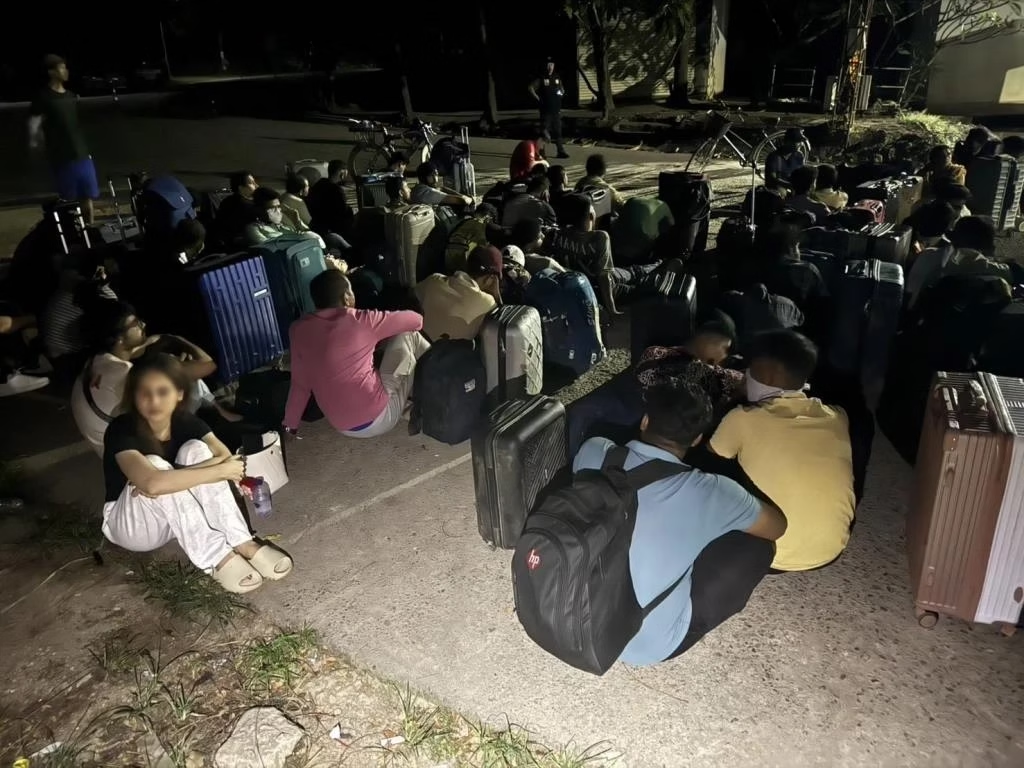
The raid freed over 2,000 trafficked workers, many of them Chinese nationals, along with Indians, Vietnamese, and others. They had been forced into pig butchering frauds that targeted victims worldwide.
The operation triggered a chaotic flight across the Moei River into Thailand, where some people drowned and others were detained by Thai authorities for processing as trafficking victims.
Critics from Justice for Myanmar and experts at the United States Institute of Peace called the move a publicity exercise to polish the junta’s image before a planned December election.
They argue the regime and its border allies have long profited from these rackets through extortion, land deals, and protection fees. At the same time, pressure from Beijing for tougher crackdowns underscores the cross-border web of organized crime that continues to feed Myanmar’s grinding civil war.




